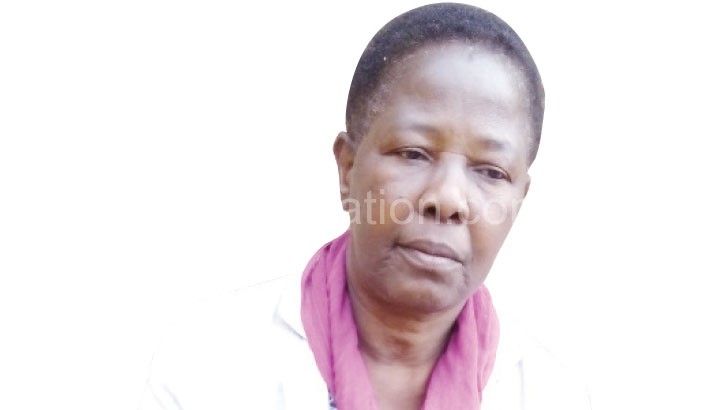Ruth chindunduli: behind widows and orphans organisation
Ruth Chindunduli of Kanjedza Township in Blantyre was, as expected, devastated when her husband succumbed to stroke in 2013. Somehow the distress became the origins of Foundation for Widows and Orphans (Fowo), a grouping of over 1 000 widows and some orphans within the city of Blantyre.
The organisation has been operational since last year, and now they it plans to reach out to widows and orphans in rural areas, including those in Thyolo and Chiradzulu districts.
Fowo members usually meet once every week in their respective areas and during their gatherings they share the word of God, encourage each other to carry on in strength and also operate a village bank that is economically helping them to uplift their lives.
“We encourage all members going through a hard time emotionally or otherwise to share it in their groups when they meet so that other group members can assist morally, spiritually and otherwise,” says Chindunduli.
As most Fowo members do not have stable sources of income because their husbands were the breadwinners in the families, they came up with the idea of a village bank where every member contributes K150 weekly.
“There are Fowo groups in different townships of the city, including Kachere, Ndirande, Machinjiri, Mbayani, Chilomoni, Bangwe, BCA Hills, Namiyango and Chimwankhunda townships. Each member contributes K150 every week. Out of the K150, K50 is for welfare and is used when visiting members that are ill or bereaved or in times of weddings and births. The K100 is their share contribution which when put together is lent out among the members at an interest of 10 percent,” Chindunduli explains.
She says the village banks are helping a lot. Most of the widows are now in one small-scale business or another, which enables them to fend for their families, most of which keep orphans.
She, however, notes that most women are failing to launch vibrant businesses because the money they lend to each other is too little because of the meagre contributions they can afford to make.
“Most of these women are poor and are even struggling to bring the K150 weekly contribution. And you can appreciate that with such little money they do not get much for loans, which means members can only do small things with it. It would really help if some micro-financing institutions came in to lend them meaningful funds at small interest,” says Chindunduli.
One of the Fowo members, Mary Raphael from Madulira Village at Makhetha, says she is now able to take care of her grandchildren better after she got a loan from the village bank.
“I borrowed K8 000 and started a charcoal business. The little I realise from the business is helping me to find food for me and my grandchildren,” she says.
Apart from the village bank, Chindunduli says they plan to train the women in vocational skills, but the plans keep falling on the wayside because of financial constraints.

“We would like to equip the women with vocational skills, so that they can produce things they can sell and earn something. Our main challenge is lack of funding because we do not have any funding organisation. The only money we can access is that from the village bank contributions, which is too little to make meaningful impact,” says Chindunduli.
She says she believes that if the women were empowered, they would buy farm inputs and provide for their families better because at the moment most of them are living in dire poverty.
“Most of these women are relying on ‘walkman’ (a small pack of maize flour) and kanyenya (small fish coated in flour) and most of their children do not go to school as they cannot afford their school fees. People do not realise this, but there is a lot more poverty in urban areas than in rural areas,” she says.
On her part, NGO-Gender Coordination Network (NGO-GCN) chairperson, Emma Kaliya, admits that as a country, Malawi has problems with different categories of people that are vulnerable and widows are no exception.
“If a husband was the breadwinner and he dies, it becomes a problem. Is it good that these women have organised themselves in that group. What is important is for them to register themselves with organisations that can help. For instance, they could get themselves known at the Ministry of Gender, Children, Disability and Social Welfare so that as government implements programmes for vulnerable people, they should be considered, too,” she says.
Chindunduli’s husband died three years ago after a 22-year battle with stroke. She believes he died from grief as three of their sons who used to help her care for him, died one after the other when he was bed-ridden. A mother of five, Chindunduli now has two children left—a son and a daughter.
Chindunduli, who comes from Chimtendere Village, Traditional Authority (T/A) Nsamala in Balaka, grew up in Zimbabwe and came back home after marrying her husband.
She studied nursing in Zimbabwe between 1969 and 1971. She came back home and worked for the now defunct Import and Export Malawi Limited, where she started as a nurse, but finished as an accountant after qualifying with City and Guilds in Management and Accounting at the Polytechnic. n




